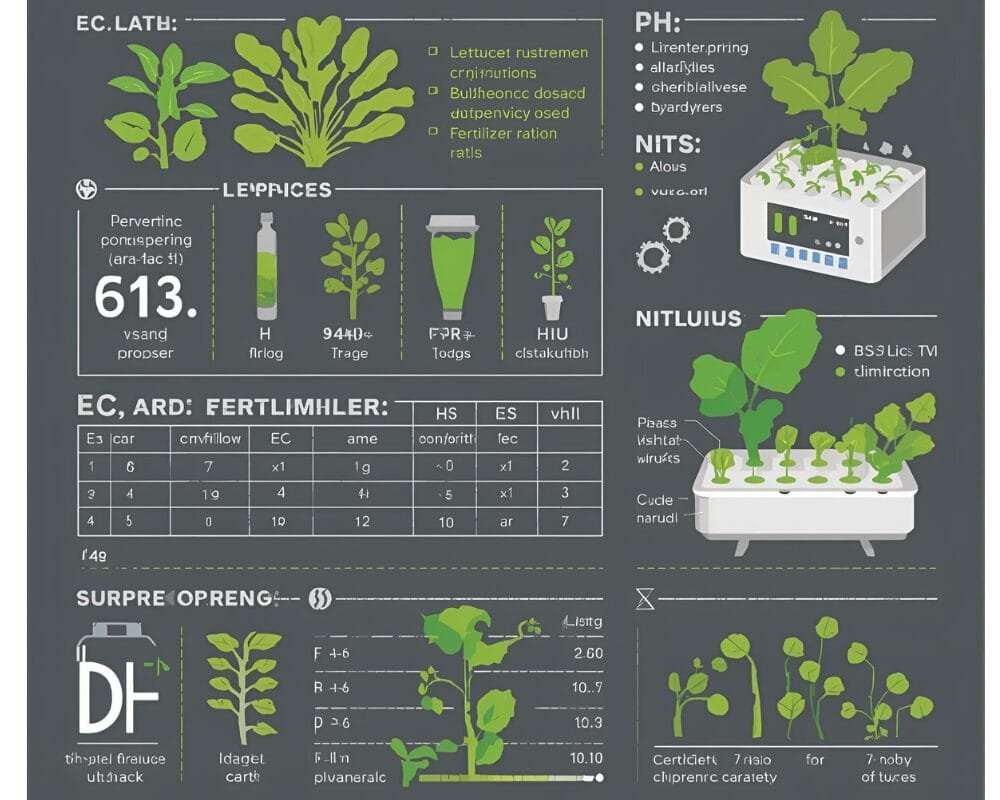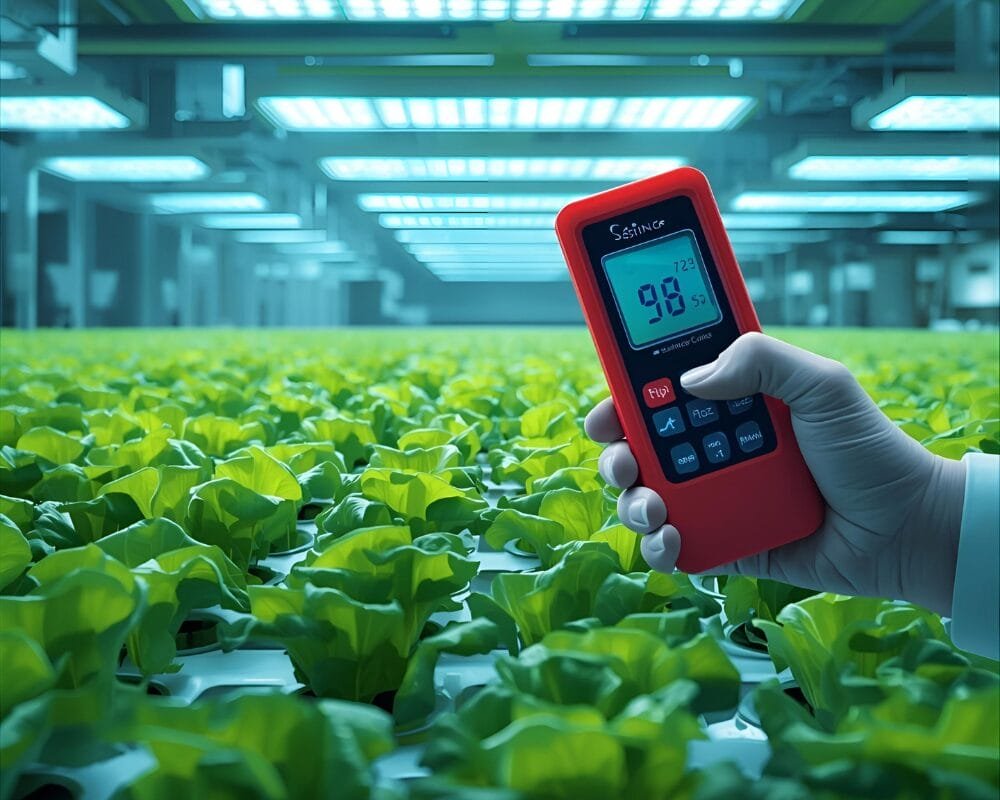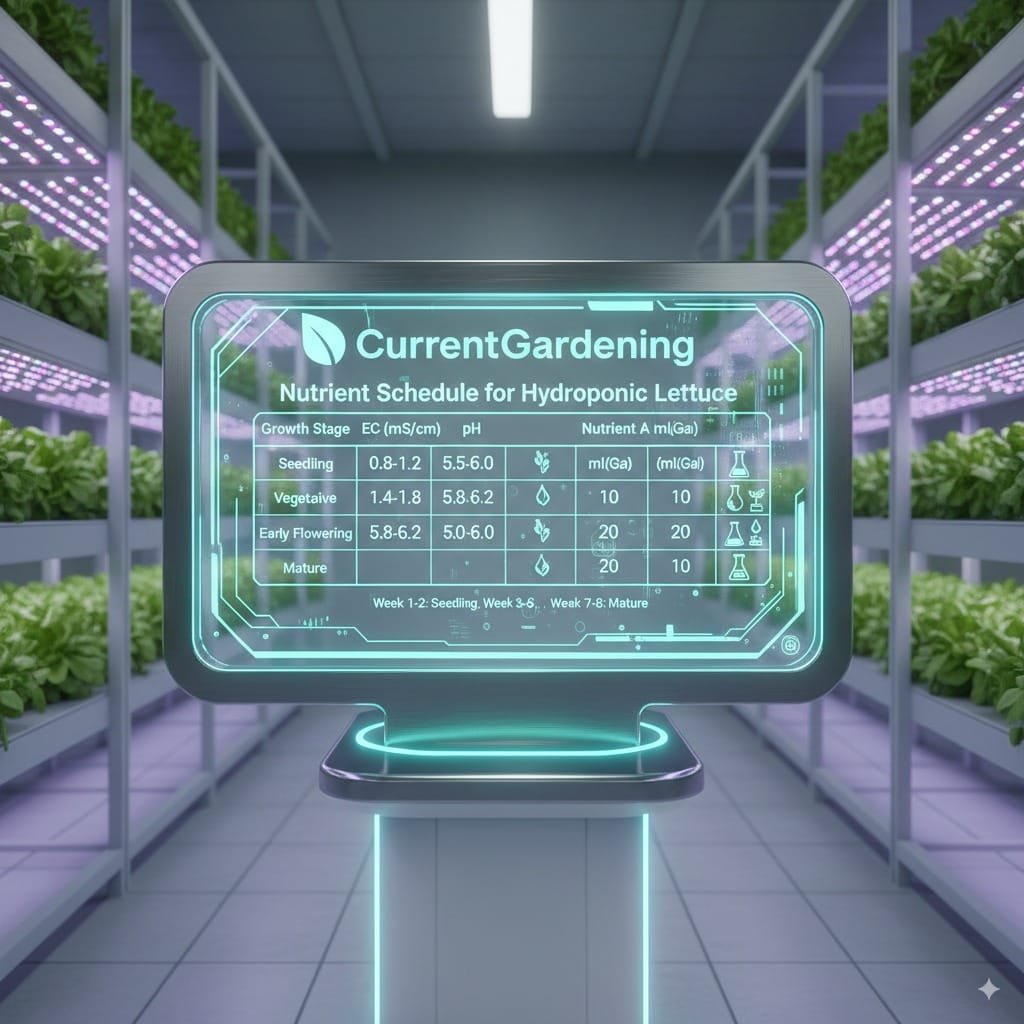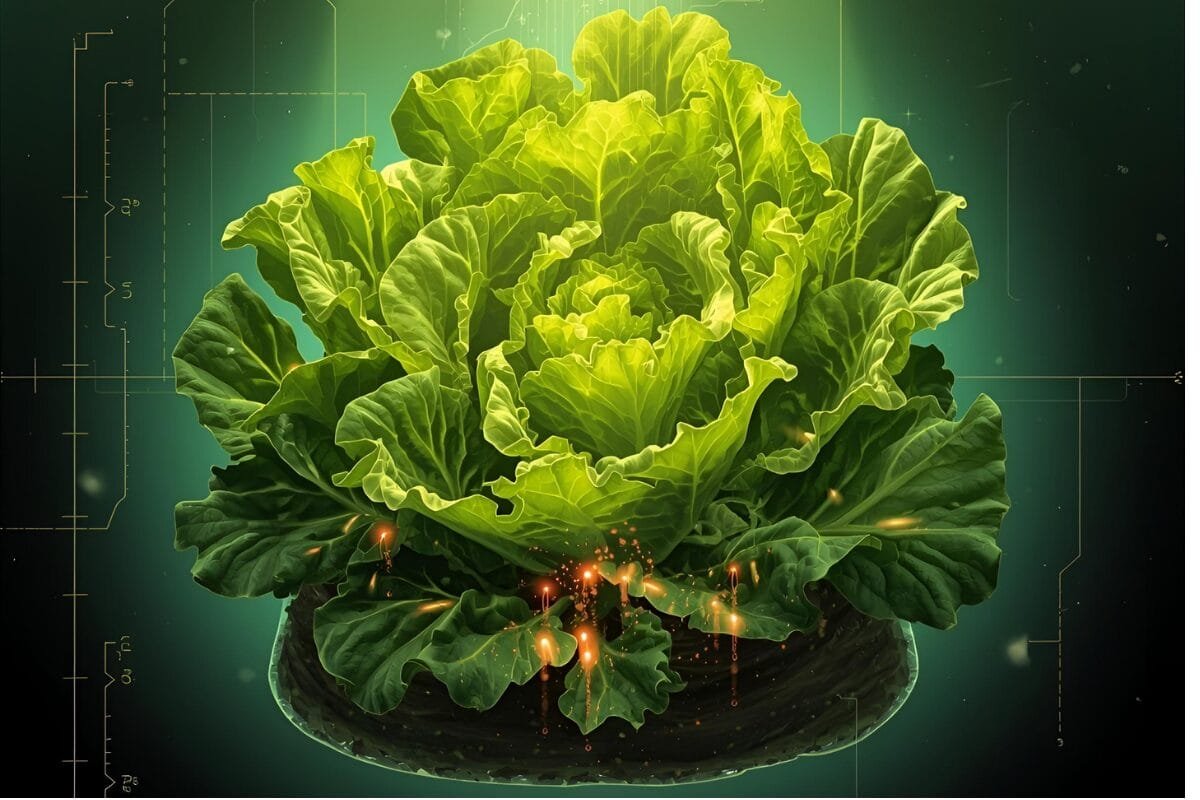🌱 Key Takeaways
- Hydroponic lettuce thrives at pH 5.5–6.5 and EC 1.0–1.6 mS/cm.
- Balanced NPK ratios and calcium/magnesium are crucial for leaf growth.
- Overfeeding leads to tip burn, while underfeeding slows growth.
- Use calculators like the EC/TDS Calculator and pH Calculator to stay on track.
Nutrients are the lifeblood of hydroponic lettuce. Unlike soil, hydroponics relies on carefully balanced solutions where every mineral matters. The right pH, EC, and fertilizer ratios ensure rapid growth, crisp leaves, and higher yields. In this guide, we’ll break down how to optimize nutrients for lettuce, whether you’re growing at home or commercially.

Why Nutrient Balance Matters in Hydroponics
In soil, plants pull minerals from a buffer of organic matter. In hydroponics, lettuce gets its food directly from the water — meaning small mistakes in pH or EC quickly show up as yellow leaves, tip burn, or stunted growth. Mastering nutrients is key to producing market-quality heads of lettuce consistently.
Optimal pH for Hydroponic Lettuce
The sweet spot for lettuce is pH 5.5–6.5. This range keeps most nutrients soluble and available. If pH drifts too high, iron and manganese lock out, causing yellowing leaves. Too low, and calcium uptake drops, leading to tip burn.
👉 Use our pH Calculator to measure and adjust your solution easily.

Ideal EC (Electrical Conductivity) for Lettuce
EC measures the total dissolved salts (nutrients) in solution. For lettuce:
- Seedlings: 0.7–1.0 mS/cm
- Vegetative stage: 1.0–1.4 mS/cm
- Mature heads: 1.4–1.6 mS/cm
👉 Check your solution with our EC/TDS Calculator to avoid over- or underfeeding.
Fertilizer Ratios for Hydroponic Lettuce
A balanced formula provides the right mix of macronutrients (NPK) and secondary nutrients:
- Nitrogen (N): Promotes leafy growth; 100–150 ppm recommended.
- Phosphorus (P): Root development; 30–50 ppm is enough.
- Potassium (K): Overall health and disease resistance; 150–200 ppm.
- Calcium (Ca): Prevents tip burn; 80–100 ppm.
- Magnesium (Mg): Vital for chlorophyll; 30–50 ppm.
👉 For custom nutrient mixes, use our Hydroponic Nutrient Calculator.

Tips for Managing Nutrients
- Check pH and EC daily in recirculating systems.
- Use reverse osmosis (RO) water if tap water is hard.
- Keep nutrient solution cool (65–70°F / 18–21°C).
- Stir solution well after adding nutrients to prevent layering.
Real-World Example
At a commercial farm in Arizona, growers maintained lettuce at EC 1.2 and pH 6.0. Heads were harvest-ready in 32 days with minimal tip burn. By contrast, another trial at EC 1.8 caused rapid growth but severe leaf burn, showing the importance of staying within the safe range.
FAQs
🌿 What happens if pH is too high for hydroponic lettuce?
Nutrients like iron and manganese lock out, causing yellow leaves and slow growth.
🌿 Can lettuce grow at EC below 1.0?
Yes, but growth will be slow and leaves may appear pale. Ideal EC is 1.0–1.6 mS/cm.
🌿 How do I prevent tip burn?
Maintain steady calcium supply (80–100 ppm), avoid rapid EC swings, and keep airflow strong.
🌿 Which nutrient mix is best for lettuce?
A leafy-green hydroponic formula with higher nitrogen and calcium works best.
🌿 How often should I change the nutrient solution?
For recirculating systems, replace every 1–2 weeks. For Kratky, size the reservoir to last until harvest.
